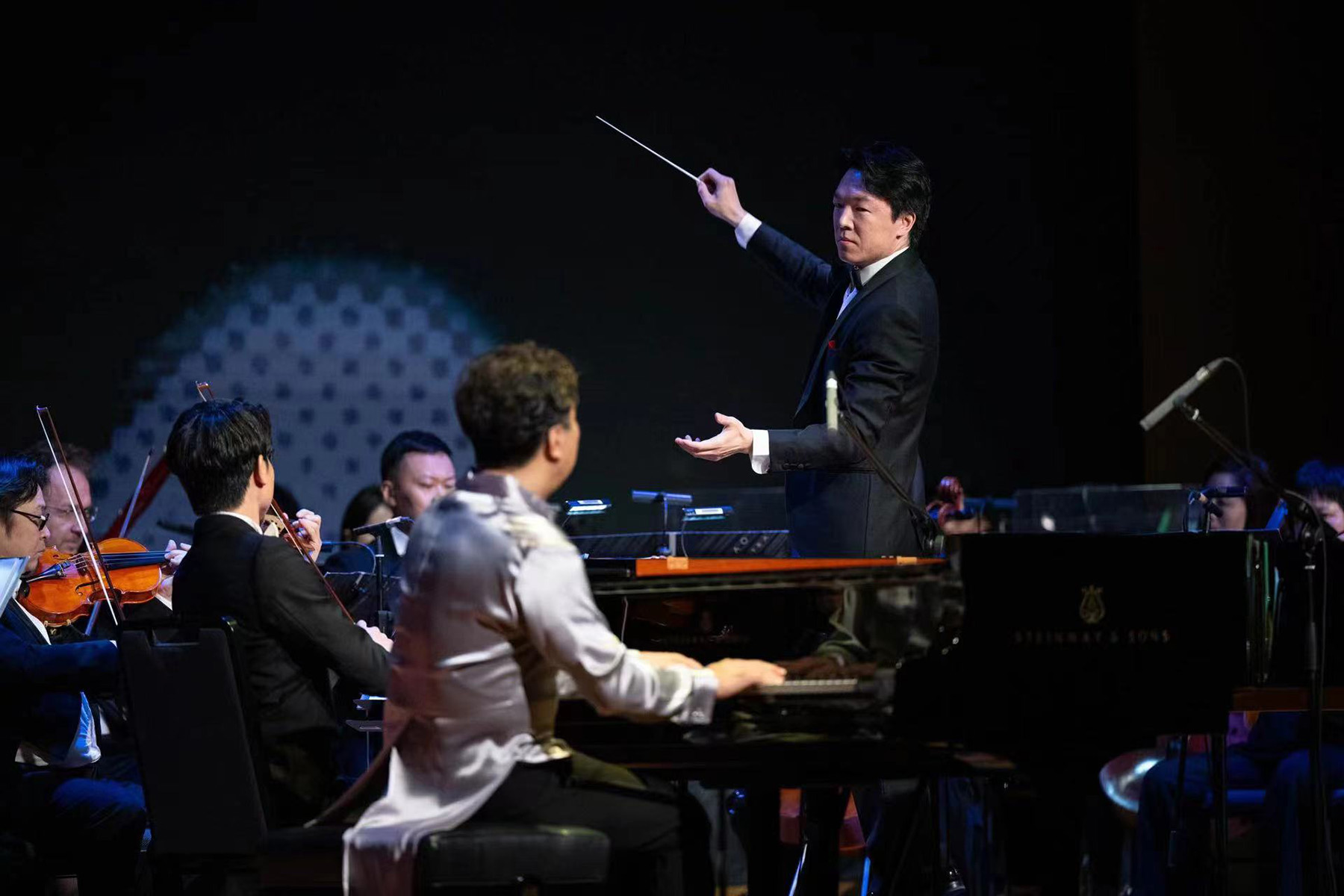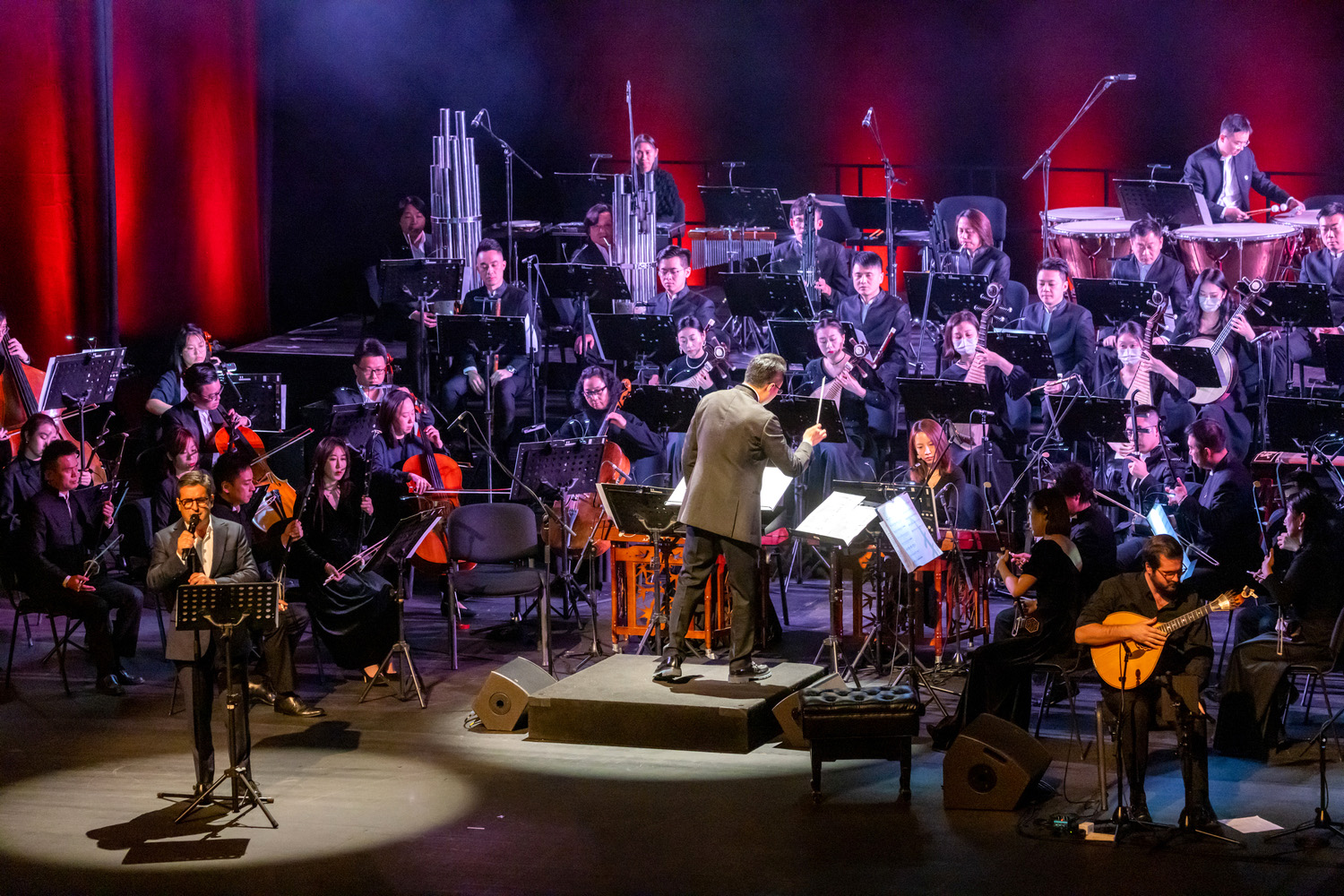
The booming concert economy has emerged as a new driver of economic growth for the Macao Special Administrative Region.
Last year, Macao hosted 240 pop concerts — a threefold increase from 2022 — with prices of certain tickets at 57 of those events fetching more than 1,999 patacas ($247) each, according to Macao-based Chessman Entertainment & Production Co.
The concert craze has had a ripple effect on various sectors of the city’s economy, giving the catering, hotel and retail businesses a lift, along with a surge in tourists. According to Macao’s Statistics and Census Service, a strong rebound in tourism last year contributed to retail sales being up 49.5 percent year-on-year to 86.25 billion patacas, while hotels saw a high average occupancy rate of 85.2 percent.
“A medium to large-scale concert can attract tens of thousands of fans, boosting hotel occupancy rates,” says Cheung Kin-chung, director of the Association of Macao Tourist Agents and chairman of China Travel Service (Macau) Ltd. “With Macao now having over 46,000 hotel rooms, an influx of 4,600 overnight visitors can raise occupancy rates by 10 percent.”
Cheung, who is also a government-appointed lawmaker, says these events have had a positive impact on tourism, with many visitors opting to extend the duration of their stay in Macao. As fans combine their concert experience with leisure travel, it is also a plus for the hospitality, transportation and retail industries.
To meet the growing demand for live music events, Cheung says Macao aims to build new venues with increased capacity.
The Macao SAR government signed 10-year concession contracts with six key gaming operators in 2022, including Galaxy Entertainment Group, requiring them to invest 108.7 billion patacas in nongaming projects and overseas markets over the next decade. Entertainment and performances are among the multiple nongaming investment categories outlined in the agreements.

In line with these contracts and the SAR government’s push for economic diversification, Macao’s lineup of entertainment venues has expanded by leaps and bounds, highlighted by last year’s opening of the Galaxy Arena, which offers a seating capacity of 16,000, and is now the city’s largest performance venue.
The Cotai Arena — the only other facility in Macao with a capacity exceeding 10,000 — is being renovated to beef up the city’s ability to host large-scale events.
The Galaxy Arena, equipped with cutting-edge virtual reality technologies, is a project of gaming magnate Lui Che-woo’s GEG, which operates hotels, casinos and integrated resort facilities. The Cotai Arena is run by Sands China Ltd, which develops, owns and manages integrated resorts and casinos in the city.
Macao’s vibrant live concert economy in the past year was reflected in the record-breaking performances by Hong Kong Cantopop legend Jacky Cheung Hok-yau, who staged a series of 12 concerts at the Cotai Arena from June 9 to July 2 on the first stop of his world tour. The shows were a huge success with more than 109,000 tickets sold and box office revenue surpassing 100 million patacas and setting a new sales record for concerts held at the venue in The Venetian Macao.
Lawrence Che Fok-sang, founder and chief executive of Chessman Entertainment & Production Co, which provided backstage support for Cheung’s concerts, including venue coordination and rehearsals, says Macao’s success in organizing high-profile performances lies in its sophisticated infrastructure and the expertise of its professional entertainment service teams.
“For an artiste, the first stop of a tour is crucial as it sets the tone and standard for all subsequent performances,” says Che, adding that Cheung’s decision to begin his world tour in Macao, with more than 200 shows planned, speaks volumes about the city’s capabilities as a live entertainment destination.
Che notes that the resorts offer facilities and services catering to the needs of both artists and their crews. Cheung’s band and production team were able to stay at the resorts where the concerts were held, with rehearsal spaces and the venue itself close to their accommodation.
The resorts also provide a wide range of dining options — from high-end restaurants to affordable food courts — ensuring that visitors have everything they need within reach. Such a degree of convenience and accessibility is “unmatched” by most other destinations, says Che.


